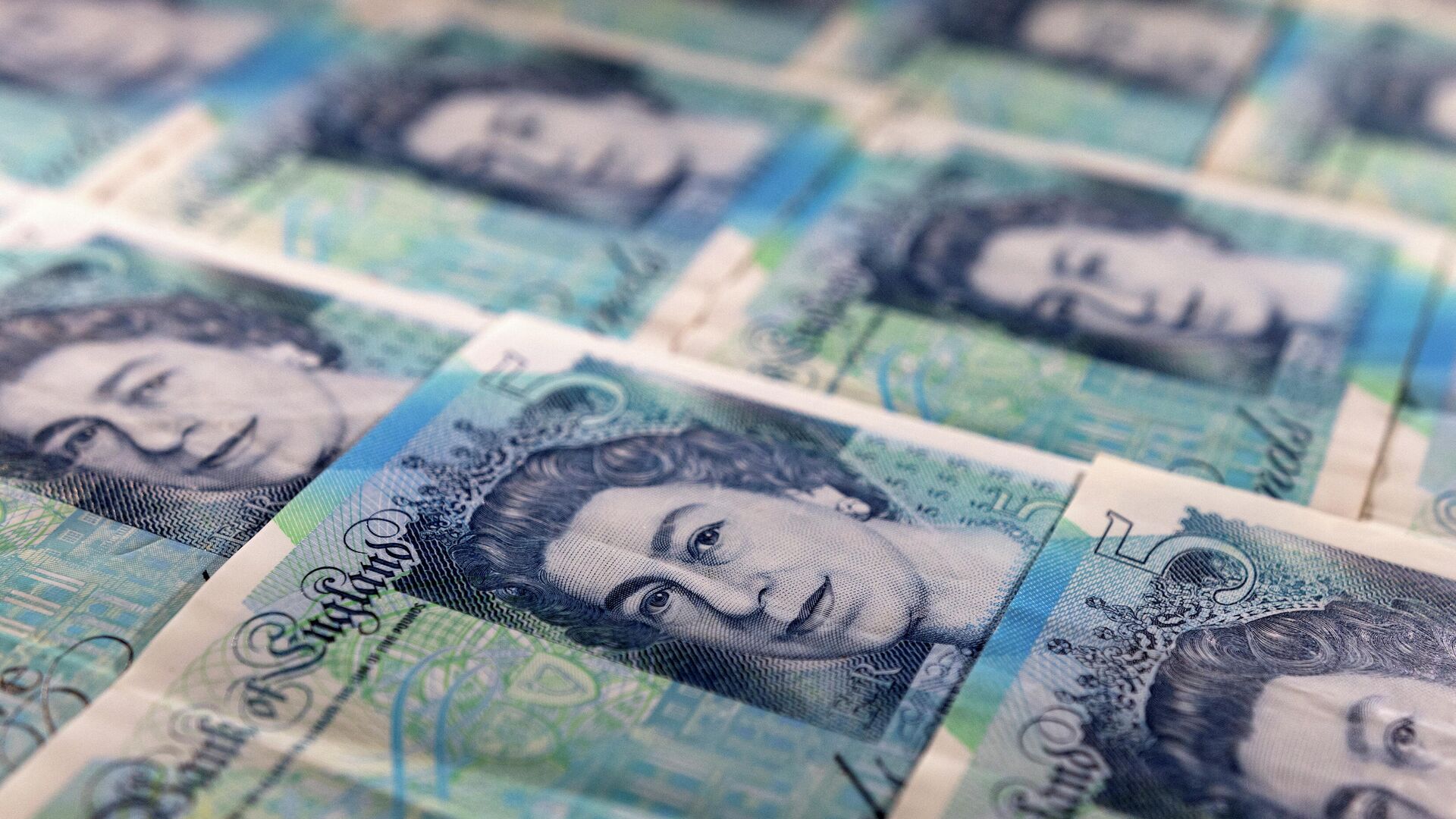https://sputnikglobe.com/20220302/uk-households-to-be-hit-by-food-clothes-inflation-as-fuel-costs-shoot-up-1093526920.html
UK Households to Be Hit by Food, Clothes Inflation As Fuel Costs Shoot Up
UK Households to Be Hit by Food, Clothes Inflation As Fuel Costs Shoot Up
Sputnik International
Like many other countries, the UK faced anomalous inflation by the end of 2021. In 2022 prices for various goods are likely to rise even higher as energy... 02.03.2022, Sputnik International
2022-03-02T16:24+0000
2022-03-02T16:24+0000
2023-05-28T15:18+0000
energy
oil
inflation
united kingdom (uk)
https://cdn1.img.sputnikglobe.com/img/07e6/03/02/1093527729_0:93:3309:1954_1920x0_80_0_0_2ed6607abd31e304c3ccc8b9f5a81394.jpg
British retailers witnessed inflation of 1.8 percent in February 2022 - 0.3 percent higher that it was in January, according to the BRC-Nielsen Shop Price Index. This is the highest rate since 2011.Several categories of goods contributed to the increase, but the groceries section - especially fresh produce - was the main driver of inflation, the index showed. Food inflation reached 2.7 percent in February reaching September 2013 highs. The year and half-year average inflation for food in the UK was 0.7 percent and 1.6 percent respectively.The main reasons for this are poor harvests worldwide compared with previous years, and a rise in transportation costs caused by disruptions and higher fuel prices. The latter is blamed on crude oil prices rocketing by more than 75 percent since March 2021. The latest spike in the price of crude, which reached the level of $113.9 per barrel on 2 March, came in response to West's sanctions against Russia over the special operation in Ukraine.Other sources of growing prices were clothing, housing, and furniture prices, according to the UK Office for National Statistics. Even heavily discounted clothing in the Boxing Day sales used by retailers to get rid of Christmas stock, failed to keep a lid on inflation.With costs growing in these sectors, the inflation for consumers reached 5.5 percent in January 2022 – a level last seen in March 1992, 30 years ago.The increase is bound to hit Brits, who already face increased costs for insurance and - more importantly - for energy bills. The latter grew rapidly after rapid rises in the natural gas price in Europe last year and in recent days, prompted by the growing consumption and lack of supplies exacerbated by Berlin's refusal to certify Russian Nord Stream 2 pipeline.The pipeline project was put on ice by Germany in response to Russia's decision to recognise the independence of the DPR and LPR and the start of a special operation in Ukraine, which the western countries labelled an "invasion". Moscow stressed that it was left with no choice but to act because of Kiev's failure to fulfil the Minsk agreements and reintegrate Donbass. President Vladimir Putin declared the goals of the operation in Donbass as demilitarisation and denazification of Ukraine.
united kingdom (uk)
Sputnik International
feedback@sputniknews.com
+74956456601
MIA „Rosiya Segodnya“
2022
Tim Korso
https://cdn1.img.sputnikglobe.com/img/07e6/03/0d/1093831826_0:0:216:216_100x100_80_0_0_e3f43a960af0c6c99f7eb8ccbf5f812c.jpg
Tim Korso
https://cdn1.img.sputnikglobe.com/img/07e6/03/0d/1093831826_0:0:216:216_100x100_80_0_0_e3f43a960af0c6c99f7eb8ccbf5f812c.jpg
News
en_EN
Sputnik International
feedback@sputniknews.com
+74956456601
MIA „Rosiya Segodnya“
Sputnik International
feedback@sputniknews.com
+74956456601
MIA „Rosiya Segodnya“
Tim Korso
https://cdn1.img.sputnikglobe.com/img/07e6/03/0d/1093831826_0:0:216:216_100x100_80_0_0_e3f43a960af0c6c99f7eb8ccbf5f812c.jpg
energy, oil, inflation, united kingdom (uk)
energy, oil, inflation, united kingdom (uk)
UK Households to Be Hit by Food, Clothes Inflation As Fuel Costs Shoot Up
16:24 GMT 02.03.2022 (Updated: 15:18 GMT 28.05.2023) Like many other countries, the UK faced anomalous inflation by the end of 2021. In 2022 prices for various goods are likely to rise even higher as energy resources, such as gas and oil, hit new highs as the result of the West's new sanctions against Russia.
British retailers witnessed inflation of 1.8 percent in February 2022 - 0.3 percent higher that it was in January, according to the BRC-Nielsen Shop Price Index. This is the highest rate since 2011.
Several categories of goods contributed to the increase, but the groceries section - especially fresh produce - was the main driver of inflation, the index showed. Food inflation reached 2.7 percent in February reaching September 2013 highs. The year and half-year average inflation for food in the UK was 0.7 percent and 1.6 percent respectively.
The main reasons for this are poor harvests worldwide compared with previous years, and a rise in transportation costs caused by disruptions and higher fuel prices. The latter is blamed on crude oil prices rocketing by more than 75 percent since March 2021. The latest spike in the price of crude, which reached the level of $113.9 per barrel on 2 March, came in response to West's sanctions against Russia over the special operation in Ukraine. Other sources of growing prices were clothing, housing, and furniture prices, according to the UK Office for National Statistics. Even heavily discounted clothing in the Boxing Day sales used by retailers to get rid of Christmas stock, failed to keep a lid on inflation.
With costs growing in these sectors, the inflation for consumers reached 5.5 percent in January 2022 – a level last seen in March 1992, 30 years ago.
The increase is bound to hit Brits, who already face increased costs for insurance and - more importantly - for energy bills. The latter grew rapidly after rapid rises in the natural gas price in Europe last year and in recent days, prompted by the growing consumption and lack of supplies exacerbated by Berlin's refusal to certify
Russian Nord Stream 2 pipeline.
The pipeline project was put on ice by Germany in response to Russia's decision to recognise the independence of the DPR and LPR and the start of a special operation in Ukraine, which the western countries labelled an "invasion". Moscow stressed that it was left with no choice but to act because of Kiev's failure to fulfil the Minsk agreements and reintegrate Donbass. President Vladimir Putin declared the goals of the operation in Donbass as demilitarisation and
denazification of Ukraine.




